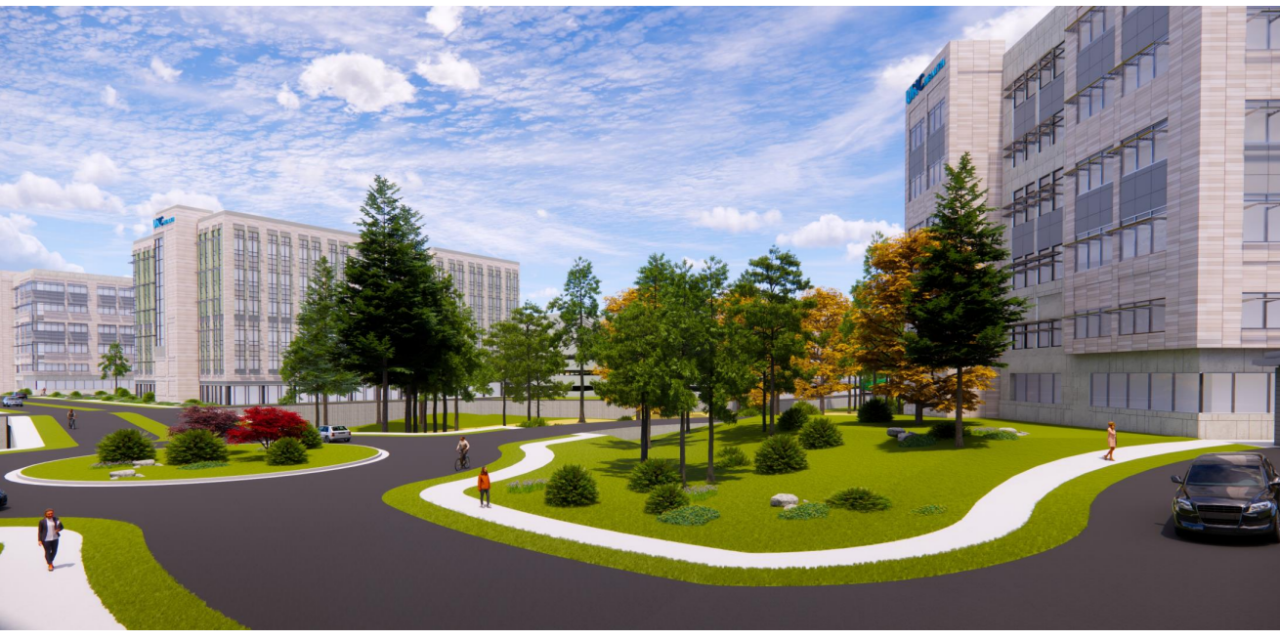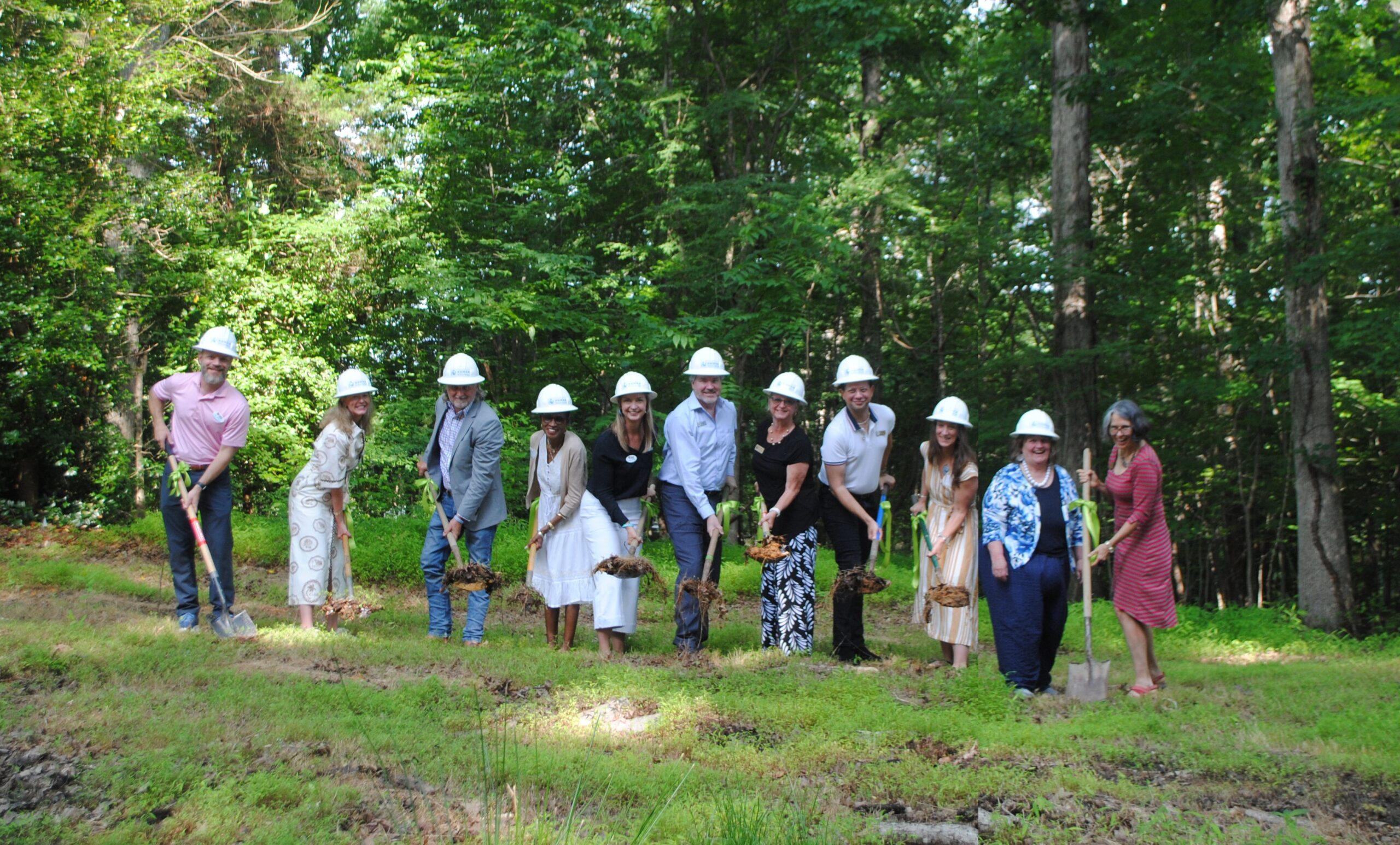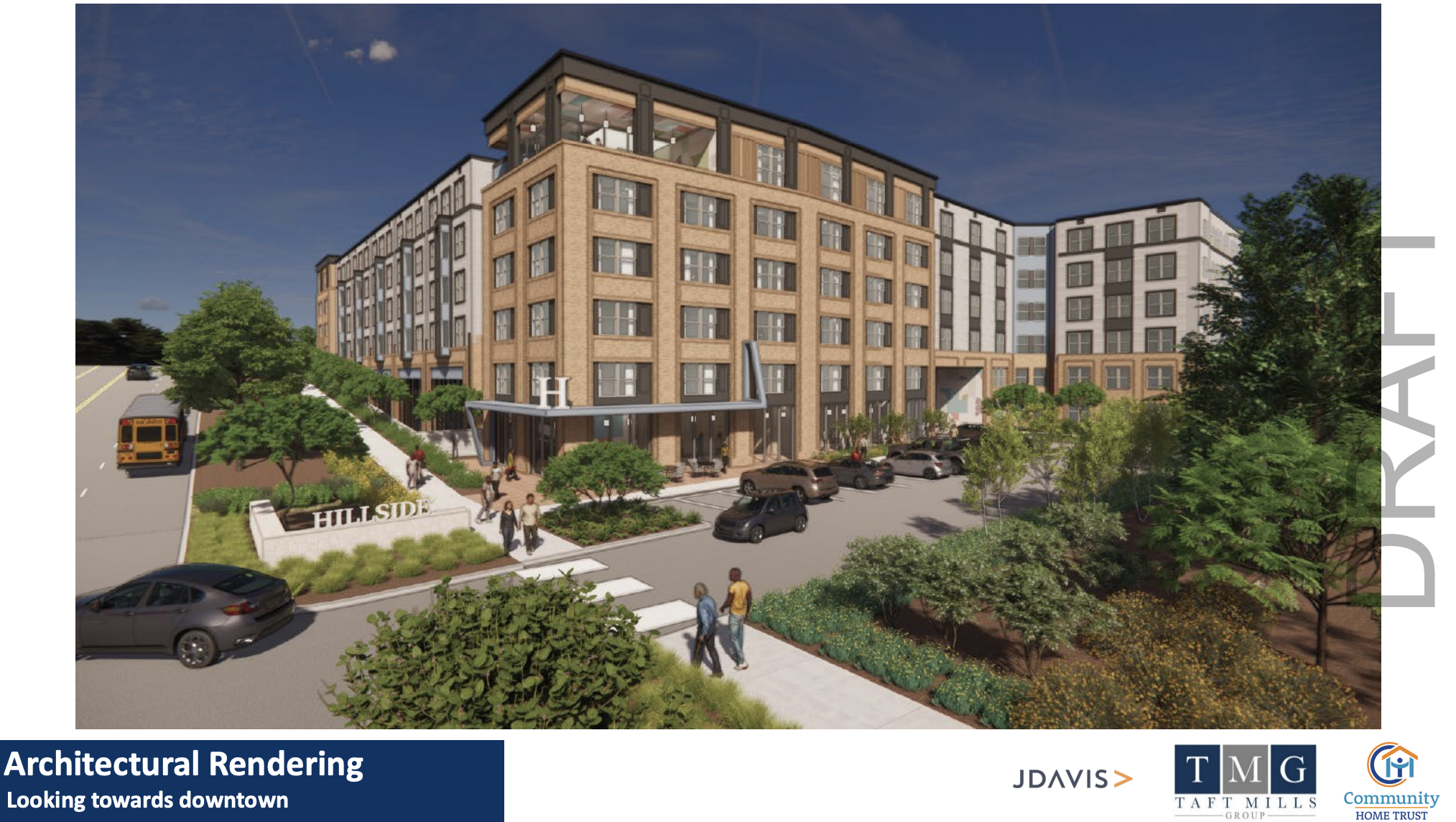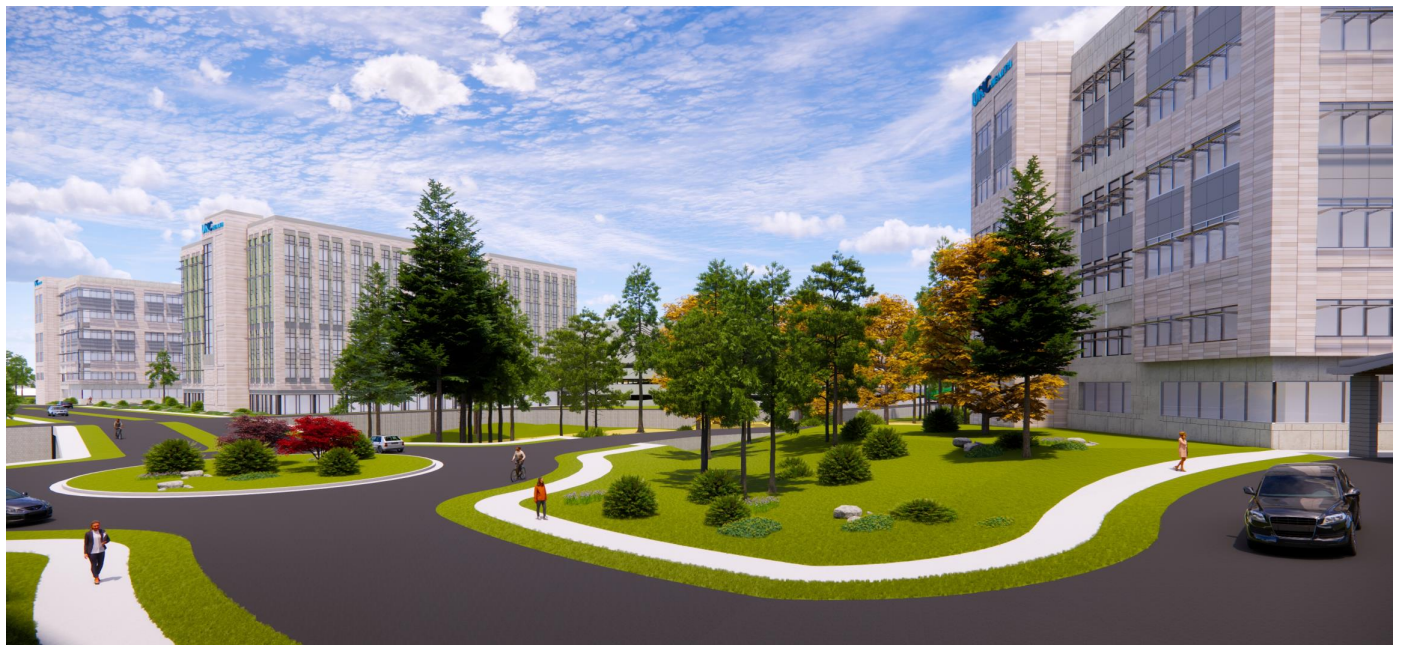Over the course of 25 years, UNC Health plans to add about 8 to 10 new medical office buildings off of U.S. 15-501. The Eastowne development project will come with spaces for research and more outpatient services.
The spotlight of this project, however, has been where employees filling those buildings will live. At a Chapel Hill Town Council meeting in January, council members raised concerns about just that. They requested that UNC Health contribute to affordable housing options nearby – but the health system expressly said it does not want to construct its own housing.
In response, UNC Health proposed a $5 million affordable housing loan fund at the council’s April 26 meeting. Chapel Hill’s Housing and Community Director Sarah Viñas said the loan could fund 500 to 1,000 units.
“This level of commitment from UNC Health, if approved, would represent the largest contribution of a healthcare institution in North Carolina,” she said.
The fund could be used for both existing and new affordable housing and subsidies. If the loan is paired with bank funding, it has the potential of growing into a $40 million loan fund.
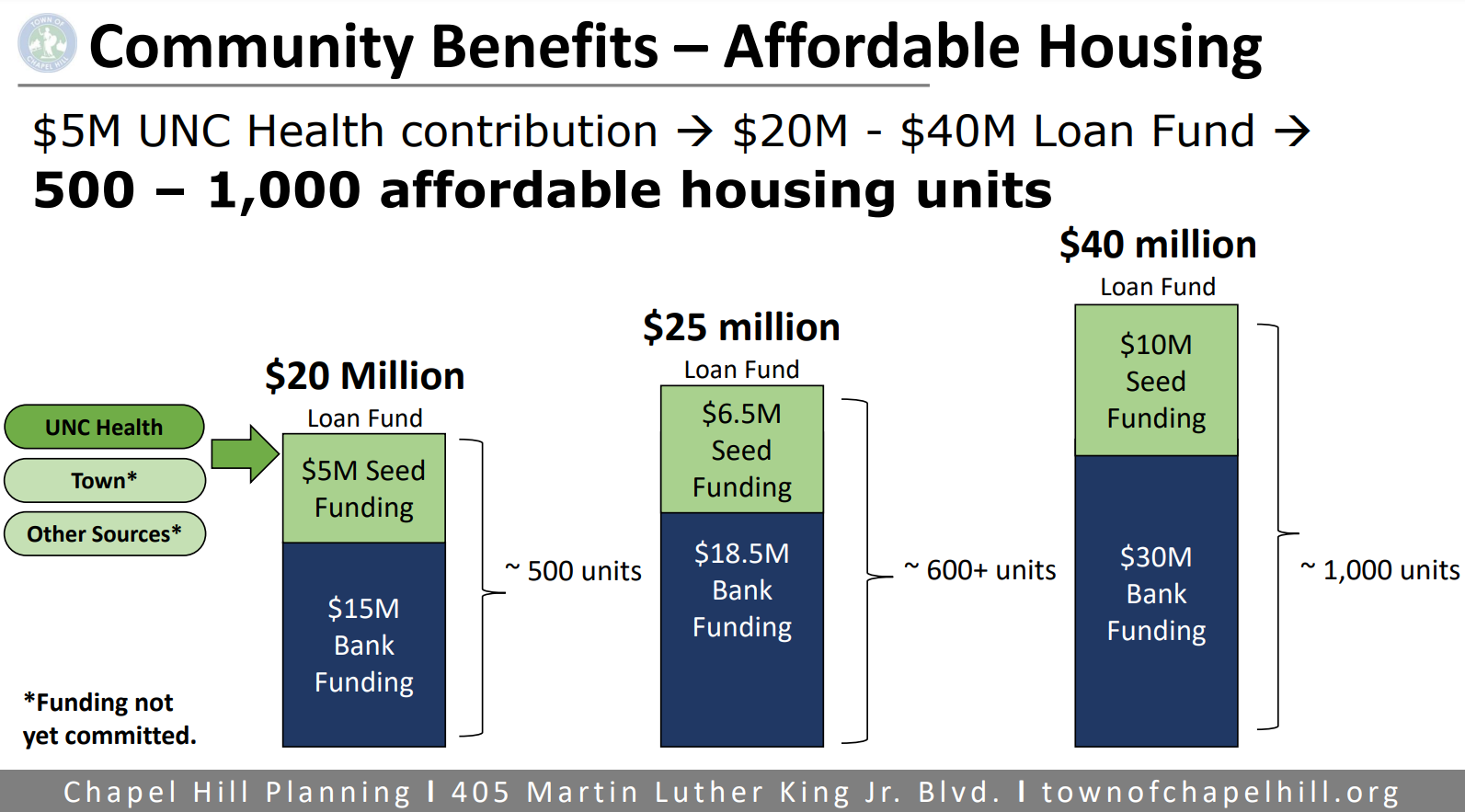
At an April 26 Chapel Hill Town Council meeting, UNC Health proposed a $5 million affordable housing loan fund. The loan, if paired with bank funding, could finance up to 1,000 housing units. (Photo via Chapel Hill Planning.)
One of the organizations that could use the funding is the local Habitat for Humanity. President and CEO Jennifer Player said a loan fund like this could help them build more homes and acquire more land.
“We cannot rely on private philanthropy to solve our affordable housing crisis here in Chapel Hill,” she said at the meeting. “But I think what they’re offering now goes beyond that type of philanthropic commitment. What UNC Health is proposing will provide affordable housing developers like Habitat with something that we sorely need: affordable, low-interest capital.”
In addition to an increased need for housing, the Eastowne development will likely come with an increased need for town services. These services could include fire, policing and street maintenance.
During the April 26 meeting, UNC Health proposed two affordable housing loan options. The first is the full $5 million loan with no additional payment for town services. The other is a smaller loan of $3 million plus $30,000 per building until construction is completed. This $30,000 would be in lieu of property taxes or in other words, additional money UNC Health would pay for town services.
This all-or-nothing proposal to pay for services sparked several concerns from council members, including Michael Parker.
“I really do think that it is in everybody’s best interest [for UNC Health to pay for the town services it uses],” Parker said. “You pay for your medicine, you pay for all your other services. It seems to me entirely appropriate that you would pay for essential services the town is going to provide.”
Council member Camille Berry echoed this point.
“They are services, they’re not icing on the cake,” Berry said. “They are there, they are your insurance policy should something happen.”
Some council members said they also thought the affordable housing funding as a whole wasn’t enough to offset the needs of future employees. Adam Searing suggested UNC Health find better opportunities to increase it.
“We’re talking about hundreds of millions of dollars that are floating around,” Searing said. “It just seems like for something that’s so important as housing [for] a lot of your employees, that we could come up with a little more money… if you all are able to do $400 million in charity care, surely we can find a little bit more money for doing that.”
UNC Health said they aren’t considering any greater contribution than $5 million at this time.
In addition to housing, any future employees would create more parking needs. UNC Health’s plans include several parking decks, but one’s placement in particular brought both council and community concerns: the hickory oak forest or Northern 20 area.
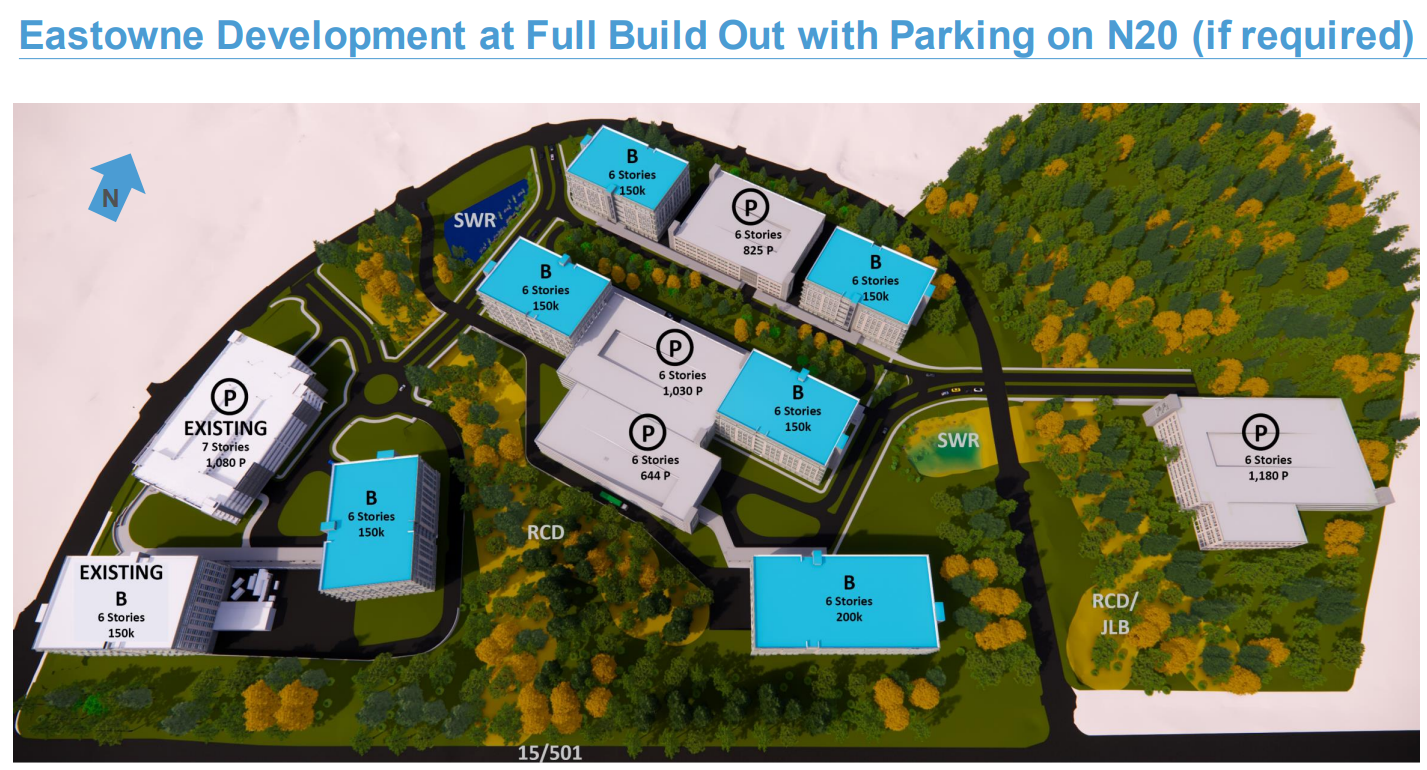
Rendering of UNC Health’s proposed Eastowne Development project. The project could include constructing a parking deck on hickory oak forest (far right), a national heritage site. Photo via Town of Chapel Hill.
Rachel Willis is on Chapel Hill’s Stormwater Management Utility Advisory Board. She said the area is one of the state’s national heritage sites and home to mature trees and slopes that are important for stormwater management.
“It is unique, there is none other like it in this area,” Willis said. “There’s only 66 of them across the state… and it’s those trees and mature slopes that really give you the cleaning of the water when you have sudden precipitation events.”
Council member Amy Ryan suggested that UNC Health consider selling the land to conservationists.
“The preservation of the North 20 [forest] is key,” Ryan said. “Even if you need parking at some point, there’s a lot of land around you and we can figure it out. This is the only thing like this in town. We have very few opportunities to do something of this magnitude on an environmental level.”
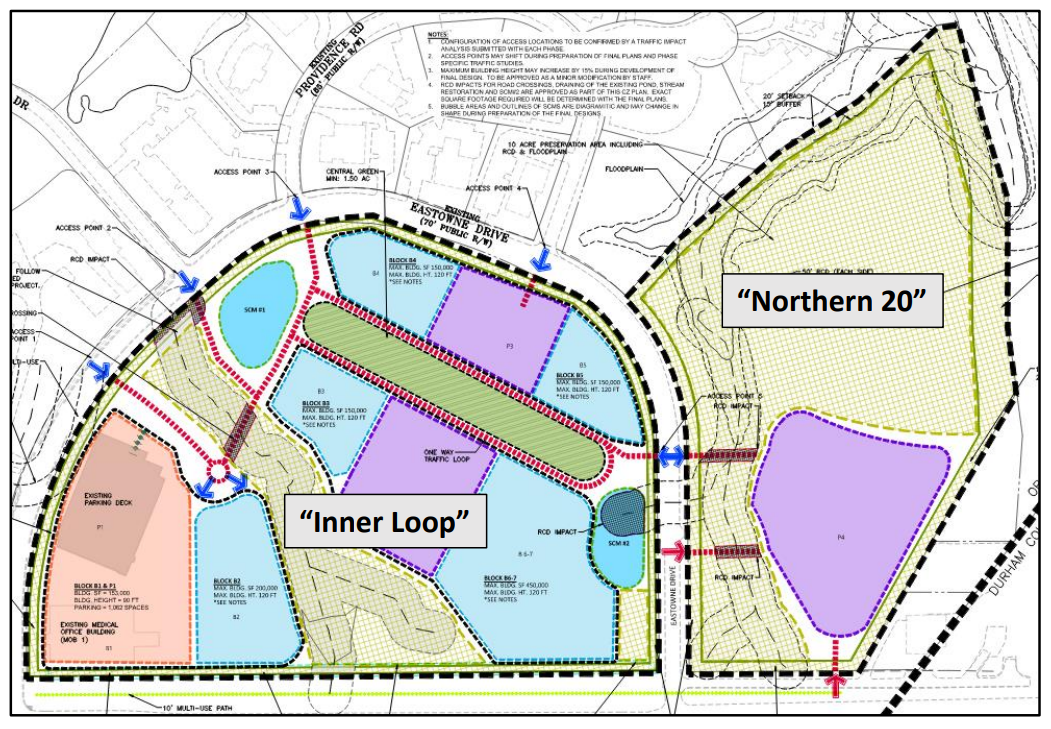
Map of UNC Health’s proposed Eastowne Development project. Photo via Town of Chapel Hill.
Overall, Mayor Pam Hemminger and other town council members said they are in support of the expansion and look forward to what UNC Health has planned.
“We all really respect UNC Healthcare [and] want them in our communities,” she said. “We want to figure [out] a way to [say] yes. We’re getting so close, we can make this go.”
The Chapel Hill Town Council will discuss and take action on the UNC Health Eastowne Development again during its meeting on May 24.
Featured photo via UNC Health.
Chapelboro.com does not charge subscription fees, and you can directly support our efforts in local journalism here. Want more of what you see on Chapelboro? Let us bring free local news and community information to you by signing up for our biweekly newsletter.

